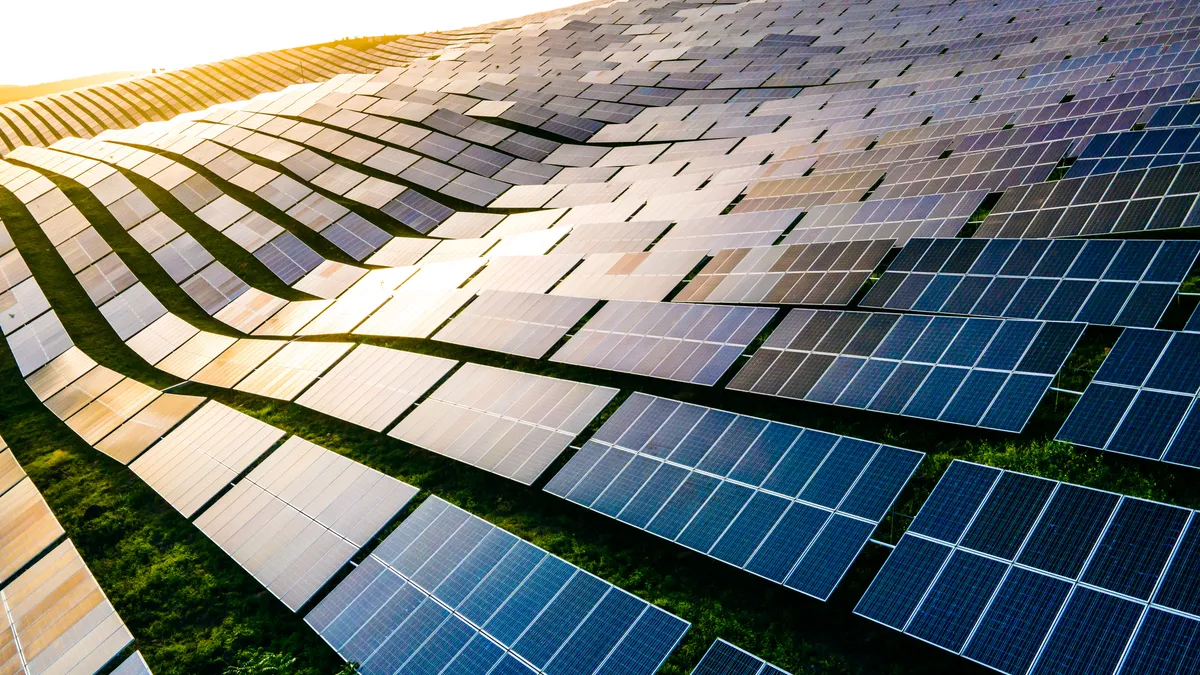Dive Brief:
-
John Ketchum, newly appointed president and CEO of NextEra Energy, criticized the U.S. Department of Commerce's decision to investigate complaints of solar panel tariff circumvention in four Southeast Asian countries during the company's first quarter earnings call on Thursday.
-
NextEra Energy estimates that 2.1-2.8 GW of the solar and storage projects the company planned to build in 2022 may be delayed to 2023 because a number of suppliers are not shipping solar panels to the U.S., pending a decision by the Commerce Department.
-
An inability to purchase solar panels from Southeast Asia will force renewables companies to source their materials from China, Ketchum said, an outcome he described as "perverse" and "outrageous."
Dive Insight:
Although NextEra Energy officials maintain the company is better positioned than others to deal with market disruptions, Ketchum said he intends to make the Commerce Department fully aware of the unintended consequences of their anti-dumping investigation.
"If you don't know what the tariff rates are in Southeast Asia, it forces you back to China, which is a perverse outcome, an outrageous outcome quite frankly, and one we intend to make sure the Commerce Department clearly understands," Ketchum said during Thursday morning's first quarter earnings call.
A number of solar suppliers, NextEra Energy Chief Financial Officer Kirk Crews said, have decided not to ship solar panels to the U.S. at least until the Commerce Department announces a preliminary decision in the investigation — a milestone that is expected to occur in August.
U.S. manufacturers, Ketchum later added, aren't large enough to pick up the slack for the lost Southeast Asian supplies. He estimated that U.S. manufacturers only have the capacity to meet 10-20% of the nation's solar panel demand.
"Despite the delay, given our competitive advantages, including the strength of our supplier relationships and contracts, we remain comfortable with our current development expectations for wind, solar and storage which are to build roughly 23-30 GW over the four-year period from 2021 through the end of 2024," Crews said.
Crews also touted the diversified nature of NextEra's business, including access to multiple renewable energy technologies, which he said would provide a "natural hedge" against disruptions. He said NextEra anticipates demand will shift temporarily from solar to wind energy.
NextEra does seem likely to take a hit due to the investigation, at least where its solar projects are concerned, according to Mike Doyle, a senior equity analyst for utilities at Edward Jones. However, Doyle said it's also likely the company will make up for the losses with wind projects and cost management.
"They also have a really strong wind business — in fact historically wind has been the bigger driver for them," Doyle said. "This could be a bump in the road. But to me, it's a temporary one if I step back and look at where this heads longer-term."
Growth within the company's utility subsidiary Florida Power & Light could also help make up for some of the delayed solar projects, Doyle said. Florida Power & Light's customer base grew 1.6% year-over-year, according to Crews, and first quarter retail sales increased 2.6% year-over-year.














